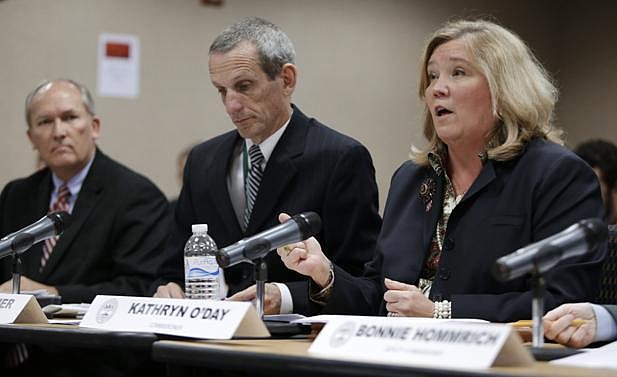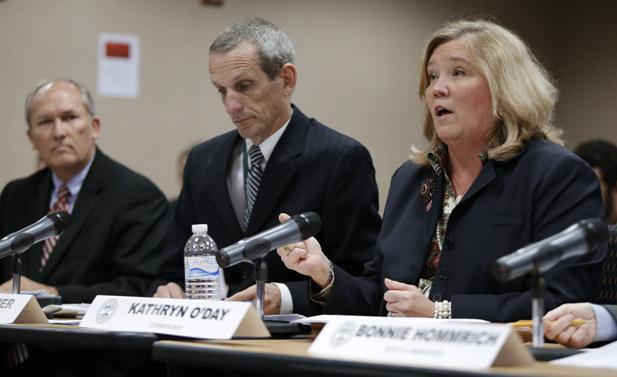NASHVILLE - A special team within the Tennessee Department of Children's Services fell behind in reviewing child deaths and ignored its own policies, according to DCS records and staff interviews.
The information was given to The Tennessean on Friday by department spokeswoman Molly Sudderth.
The newspaper is among a number of news organizations - including The Associated Press - suing DCS to obtain more detailed records the agency refuses to release.
The organizations argue the public needs information that would reveal how the state handled cases where children DCS had investigated died or nearly died.
For instance, the documents obtained by The Tennessean show three infants died in separate incidents in a home that was well known to DCS. After the third baby died, DCS flagged the family as being a high risk, while allowing children to remain in the home.
Currently, the agency's internal child fatality review team is the subject of a federal court filing in which a watchdog group charges that "grossly incomplete" reviews may be putting children at risk.
DCS admits the team, mainly responsible for figuring out what could have been done to prevent deaths, fell behind in its work and spent last year scrambling to eliminate the backlog of fatality cases needing review.
Carla Aaron, DCS executive director of the office of child safety, said in 2012 the team reviewed nine cases from 2010, 67 from 2011 and 58 from 2012. Some cases from late 2012 are yet to be reviewed.
Aaron said the team fell behind because information and autopsies were not always immediately available.
When the team of high-ranking staffers did gather, they followed a one-page "protocol" that Aaron said she wrote in January 2011.
At that time, she said the department wanted to do better death reviews, so DCS discarded an existing four-page policy listing dozens of steps and set deadlines to complete the work.
The protocol change was criticized in the federal filing last week, in which Children's Rights, a New York-based advocacy group, asked that a judge require the department to turn over more records.
The group said it had received partial "superficial" documents that made it "impossible to determine what transpired" in cases in which children died.
The department also failed to follow its own rules for changing the reviews, according to The Tennessean.
At one point, DCS simply removed the old policy from its website, an approach to policymaking that fell far short of the agency's procedures for such a change, according to DCS documents.
"The important thing is: We were still doing reviews and we had a protocol," Aaron said. "But the policy hadn't caught up with the work. We were doing (reviews) in a way, we thought, to reflect a more effective way."
However, the four-page policy required a report for each fatality and an annual summary, but the team did not do that, Aaron said.
"There have never been annual (DCS) reports," she said.
Last month, the department began trying a new type of fatality review.
Leaders call the new approach "event analysis," a term derived from the nuclear power, aviation and health care fields, which have long conducted painstaking reviews of mistakes.
"We obviously think we need something else," DCS Commissioner Kate O'Day said in December. "What we have been doing is accepted practice, and I think pretty typical. The event analysis does represent a new direction for us."
O'Day said the reviews should begin to happen immediately after deaths and will take place at regional offices and with the involved caseworkers present.

